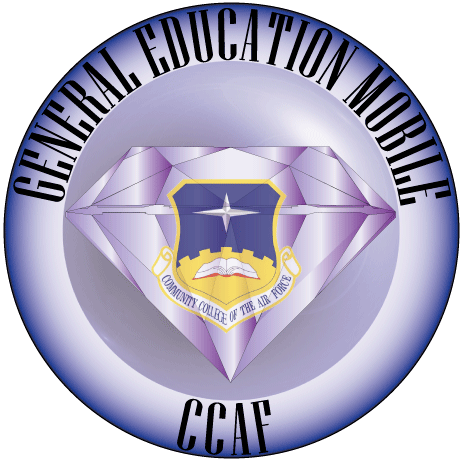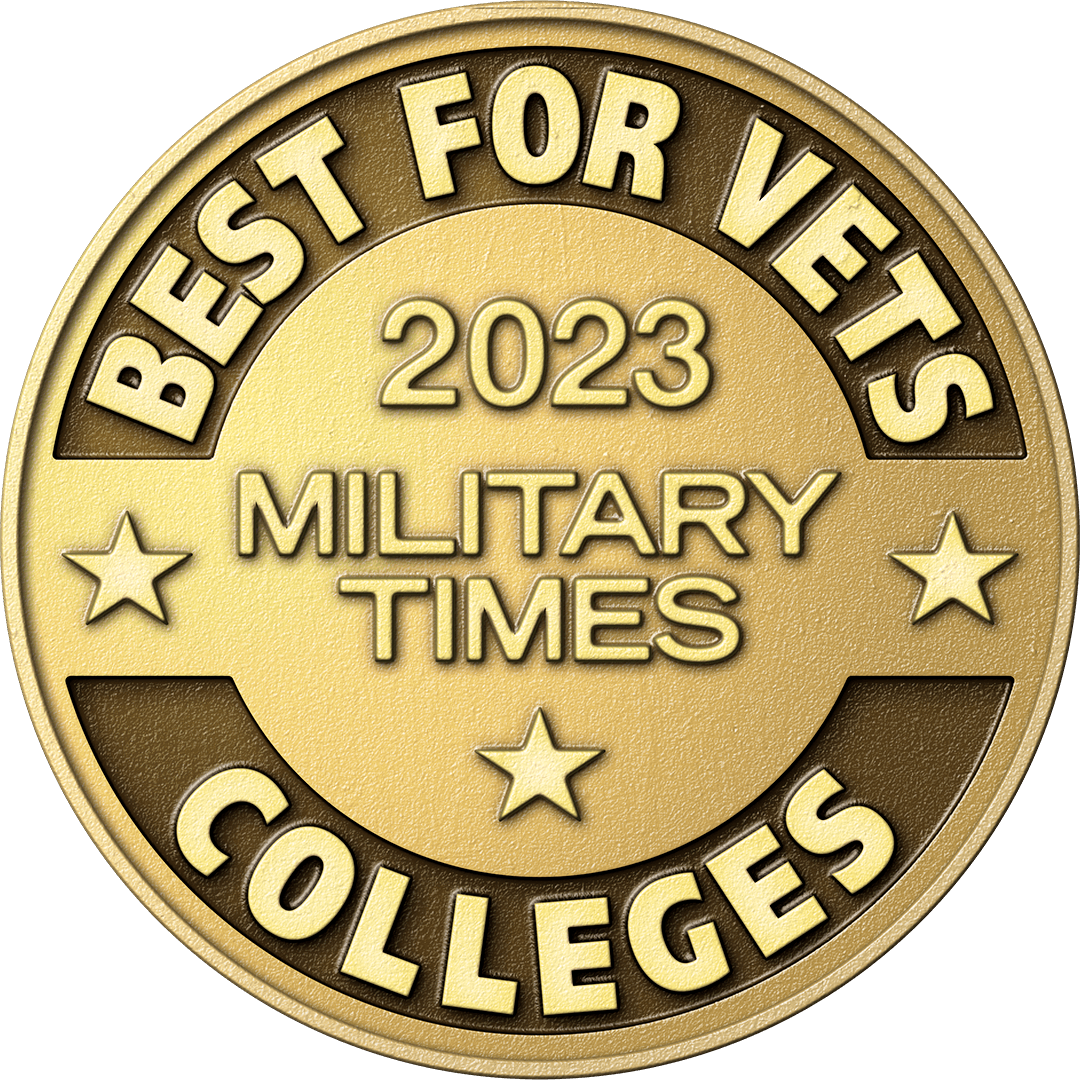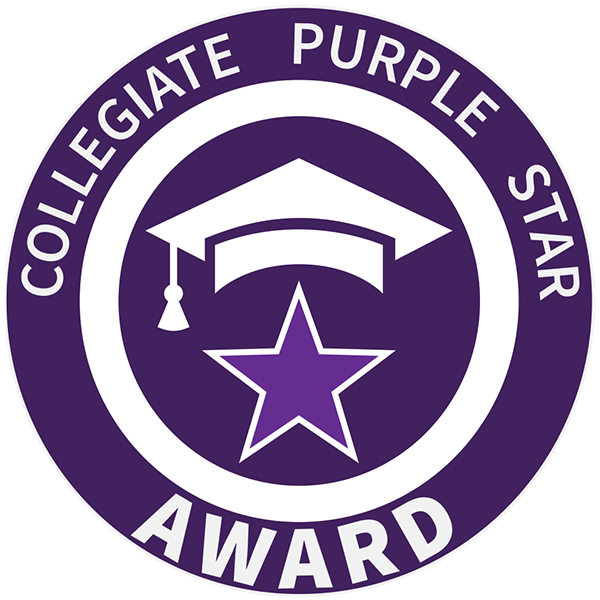General Education Mobile (GEM)
Bowling Green State University is a proud partner with the Community College of the Air Force (CCAF) through the General Education Mobile or GEM program.
This partnership streamlines the process for CCAF students to complete their General Education requirements through BGSU, which allows for faster degree completion.
Students seeking options to complete their bachelor's degree online may be interested in the Air University Associate to Baccalaureate Cooperative (AU-ABC).



Online Academic Services and Support
- Convenient 7-week sessions.
- Personalized and individualized advising from Nontraditional & Military Student Services and eCampus.
- All courses in the GEM program are 100% web-based and utilize the Canvas platform.
- Online access to tutoring, writing, and math/stats support through our Learning Commons.
- Technical support to ensure access to courses and services.
Cost of Tuition and Fees
- Tuition - $250 per hour
- Registration Fee - $8 per term
- Connect with an education services officer at your Base Education Office for help in applying for tuition assistance
For Questions please contact:
David Rice, Assistant Director of Nontraditional & Military Student Services | drice@bgsu.edu | (419) 372-8136
Apply Now
.
List of GEM Approved Courses below:
ORAL COMMUNICATIONS
Basic principles of public speaking. Focuses on informative and persuasive speaking in both extemporaneous and impromptu styles. Emphasizes adapting to diverse audiences, reducing communication apprehension, presenting in varied contexts, and using technology effectively. Approved for distance education.
WRITTEN COMMUNICATIONS
Provides a theoretical and practical foundation for college writers and lays important groundwork for future academic reading and writing experiences. This workshop-based course explores diverse intellectual practices associated with effective writing, including analyzing and producing genres, investigating individual writing processes, and reflecting on one's learning with an eye toward transferring writing knowledge to new situations. Students explore and experience how writing works in worlds they inhabit by composing digital, visual, narrative expository arguments.
Builds on foundational understandings of academic reading and writing with a focus on inquiry-based writing. By engaging a range of writing tasks, both informal and formal, students pursue person- and library-based research writing that has meaning to them personally. Students also continue to build confidence as readers, writers, and critical thinkers, adding their voices to ongoing conversations. Using a workshop approach, students practice strategies for representing, through reflective writing, their research and composing processes to a range of audiences. ePortfolio based. Placement through University Writing Program online pre-screening or prior credit for WRIT 1110.
Mathematics
Description of data, binomial and normal distributions, estimation and testing hypotheses for means and proportions.
Prerequisites: Two years high school algebra, one year of geometry and a satisfactory placement exam score.
Social Sciences
Price and allocation of resources. Demand, supply; price theory; income distribution; market failure; current problems and public policy. Enhances students' ability to evaluate economic policy. Recommended before ECON 2030.
Prerequisite: high school algebra or equivalent.
National income and employment, inflation, banking system, monetary and fiscal policy; economic growth and development; international economics. Develops students' understanding of tradeoffs and enhances critical reasoning abilities.
Prerequisite: ECON 2020 or with consent of department.
This gateway course to the field of Ethnic Studies introduces students to interdisciplinary analyses of race and ethnicity in the U.S. It explores the social construction and ideologies of race in colonial conquest, slavery, and immigration, and the intersections of race with other hierarchies such as class, gender, and sexuality.
Study of aging from a multidisciplinary perspective; focus on the way people are thought about, evaluated and treated on the basis of their age.
Selected constitutional, intellectual, political and social developments that defined and shaped America between its first European settlement and the end of Reconstruction.
How and why selected economic, intellectual, political and social developments transformed post-Civil War America and shaped 20th-century American society.
Comparative study of how and why economic, social, political and intellectual factors shaped and defined the history of selected Western and non-Western civilizations in the ancient and medieval periods.
Comparative study of how and why selected economic, social, political and intellectual revolutions of the modern world have transformed and are shaping contemporary European and non-Western cultures.
Scientific approaches to the study of behavior of organisms. Application to personal and social behavior.
HUMANITIES
Interdisciplinary exploration of race, ethnicity, class, gender and sexual orientation in the United States, emphasizing imaginative expressive forms, such as fiction, poetry, film and the visual arts.
Explores different categories of music (classical, world, popular) and various genres in their social contexts. Topics include, but are not limited to: music and ethnicity, music and gender, music and spirituality, music and love. Directed listening focuses on how musical sounds create meaning in different historical periods and cultures.
Musical systems of major non-Western art musics: Africa, Near East, Pacific and Asia. Theoretical, analytical and cultural concepts related to music.
What makes you, you? Why do bad things happen to good people? Can you really trust what you see? Can we be certain that God exists? What makes us responsible for the things we do? What are the limits of what we can know? What makes life worth living? In this course, you will critically discuss and debate these kinds of questions that have puzzled us for thousands of years and enrich our understanding of ourselves and our place in the world.
Where does morality come from? Is morality just a matter of opinion? What makes an action right or wrong? What does it mean to be a good person? Are there some things it's never okay to do? In this course, we will grapple with these and other central theoretical questions in ethics.
Some of the ways in which mass media (TV, film, recording industry, print, radio) have affected modern American culture. Media relationships and interactions.
Basic theories of approaches to 20th century and 21st century African-American popular culture. Trace ways black popular culture has shaped and is shaped by national and global contexts. Examine relationship of race, ethnicity, gender, sexuality, and class. Provide an interdisciplinary approach to understanding the significance of black popular culture in contemporary U.S. and global societies.
Interdisciplinary survey of the new scholarship on women. Emphasis on the interconnectedness of gender, class and ethnicity in women's experiences and viewpoints.
Updated: 12/06/2023 02:11PM
